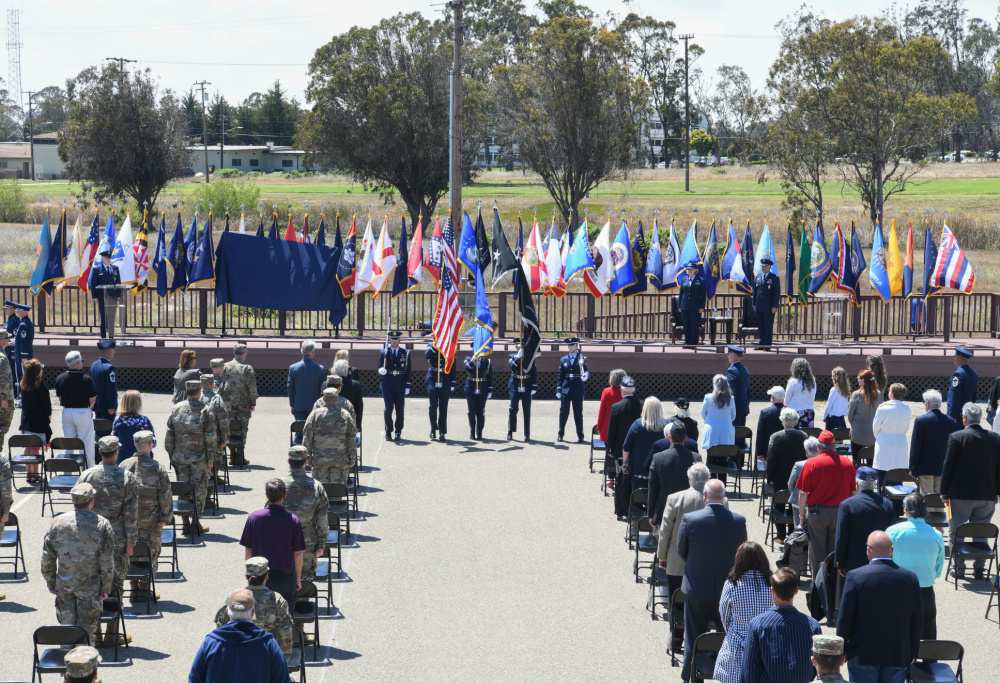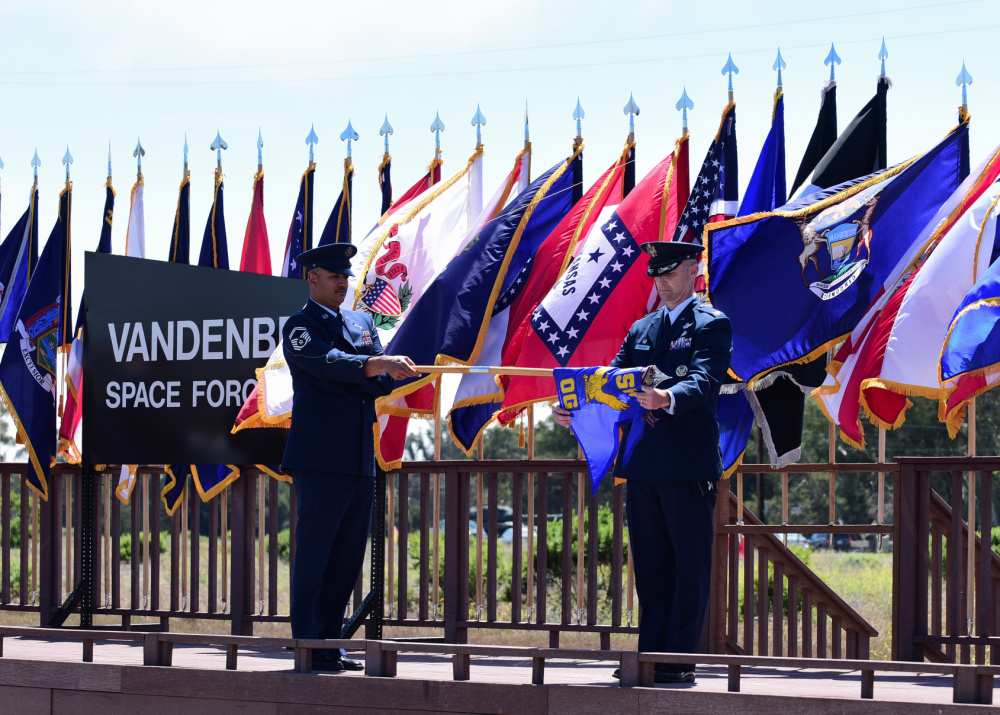Vandenberg Air Force Base formally changed its name Friday during an outdoor and socially distanced ceremony to Vandenberg Space Force Base, and transitioned from the Air Force to the command of the U.S. Space Force, the military’s newest branch.
The ceremony took place under clear skies before scores of service members and civilians at the base’s Parade Field due to the COVID-19 pandemic. The ceremony included a speech by Col. Anthony Mastalir, commanding officer of the base’s host command Space Launch Delta 30, formerly the 30th Space Wing.

In addition, the ceremony included the deactivation of the 30th Operations Group and the 30th Mission Support Group whose commanders, colonels Kris Barcomb and Michael Hunsberger, respectively, will now report directly to Space Launch Delta 30. While the base’s new name reflects the evolving composition of the military, operations will remain essentially the same, according to Mastalir.
“Day to day, it doesn’t change anything,” Mastalir said. “Reorganization will make us better by bringing disparate units together.”
Space Launch Delta 30 is in charge of supporting the launches of test intercontinental ballistic and interceptor missiles, and satellites from various government agencies and private companies. It also controls the military’s Western Range, which extends from the country’s West Coast to the Indian Ocean and is used for launch testing.
With the transition to the Space Force, Mastalir said the base is preparing a busier launch schedule and will launch its 2,000th missile sometime this year, which he said was “an exclamation point” that “scored more than six decades of dedication, persistence and commitment to assure American access to space.”
Two weeks prior to the ceremony, the base oversaw the successful liftoff of a Delta IV heavy rocket that launched a National Reconnaissance Office satellite into space on the first open minute of the first window, on the first scheduled launch attempt.

Additionally, Mastalir pointed to Vandenberg’s critical role in deterring and preparing against military adversaries, such as China and Russia, which he said are building weapons to negate American space operations. During his speech, Mastalir said the Western Range was on alert and ready for tactical launch order.
“You’ve taken mission assurance to a new level never before achieved,” Mastalir said.
Shortly before his unit was deactivated, Barcomb reminded the crowd that the base’s name change reflects the nature of the ever-changing threat and is similar to past name changes. The 30th Bombardment Group was established in 1940 and attacked enemy airfields in the Pacific during World War II before deactivating in 1946, and then reactivating as the 30th Operations Group in 1991.
During his speech, Mastalir also paid tribute to former Army-Air Force pilot and World War II veteran Jim Kunkle, who was in the crowd and who Mastalir made an honorary member of the U.S. Space Force.
“Our group has played a significant role in shaping the history of our nation and its ability to maintain an advantage in space,” Barcomb said. “Our legacy of success will endure and grow under Space Launch Delta 30.”
In his closing remarks, Mastalir rhetorically asked the crowd what the future holds for Vandenberg Space Force Base and quoted Chinese philosopher Sun Tzu.
“Seize the opportunity to chart your own future,” Mastalir said. “No one in the world is better at what we do than the Airmen and guardians of Space Launch Delta 30.”
___
(c) 2021 Santa Maria Times
Distributed by Tribune Content Agency, LLC.



